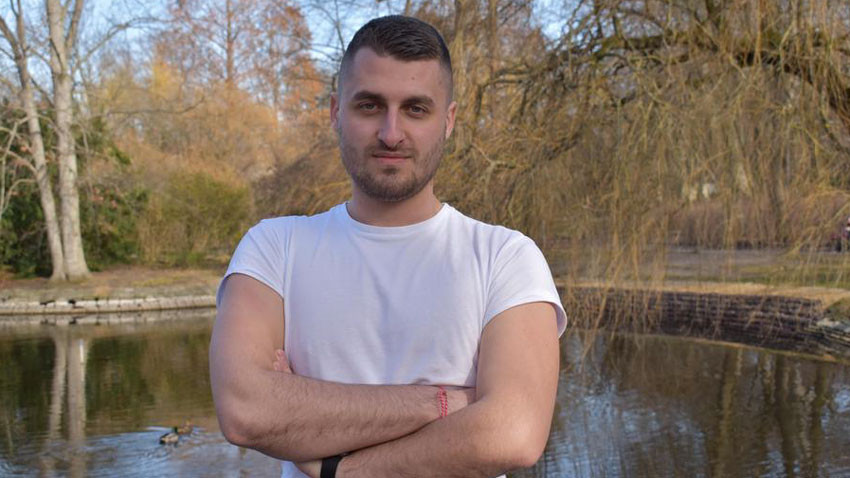
He also signaled that there was a problem with some of the voters who arrived in the section:
"Instead of a declaration stating that they will not vote anywhere else, they filled out an application to be added to the electoral roll, which has nothing to do with it. It seems that people have downloaded it from some website, which is not the one of the Central Electoral Commission. Therefore, they had to fill out a declaration again. This, of course, creates certain difficulties that may demotivate them to vote."
There are 49 registered voters in the polling station at the Bulgarian Cultural Institute in Berlin. "All others who want to exercise their right to vote fill out declarations. This slows down the process, but we are trying to compensate for it, since everyone votes by machine," said commission member Daniel Yanev in an interview with Radio Bulgaria.

As for the adequacy of the messages with which the politicians embarked on the election campaign, Yanev noted:
"The election campaign was devoid of substance. Accusations prevailed, there was little talk of what would happen in the future, and no concrete measures were proposed to solve the problems. People are tired of four parliamentary elections that have failed to produce a stable and durable government. No serious steps are seen to solve problems that we have been discussing since the protests in 2020 - corruption, lack of rule of law and others”.
He is also skeptical about the future after election day:
"I don't rule out the possibility of new elections, but whether they will be next year or in a year and a half - I don't know, but I don't think that any government created after today will be able to complete its full mandate. And the polarization we observe in society and among politicians will continue."
Written by Joan Kolev
Editing by Elena Karkalanova
The village of Oryahovitsa, Stara Zagora region, today celebrates its symbol - the walnut tree. There will be a Festival of the Walnut with a varied programme featuring the Kazanlahsko Nastroenie (Kazanlak Cheer) Orchestra, the soloist of..
Disputes in Croatia over sending military personnel to NATO mission in support of Ukraine NATO Acting Deputy Secretary General Boris Ruge visited Croatia to explain to local MPs about the Alliance's mission in support..
Konyovets village near Shumen is marking 160 years since the oldest stud farm in Bulgaria was set up. Celebrations are being organized on the farm on 1 November when officials from the Ministry of Agriculture and Food and of the State Fund..
Nuredin Nuredinaj comes from the historical-geographical region of Gòra in Northeastern Albania, where 90% of the inhabitants identify themselves as..

+359 2 9336 661
